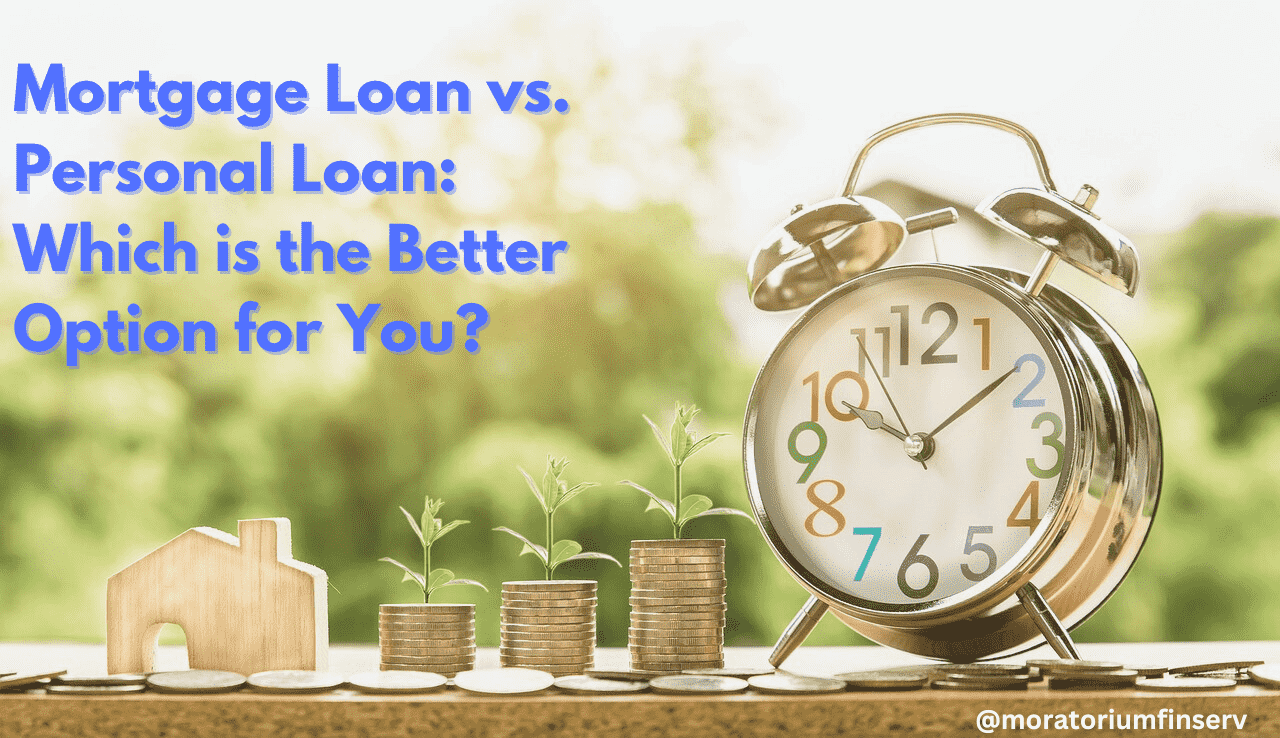Mortgage Loan vs. Personal Loan: Which is the Better Option for You?
In the realm of financial decision-making, one of the most significant choices individuals face is whether to opt for a mortgage loan or a personal loan. Both serve as invaluable tools to fulfill various financial needs, yet they differ significantly in their terms, conditions, and applications. Understanding these disparities is crucial for making the right choice that aligns with your financial goals and circumstances.
Mortgage Loans:
A mortgage loan is primarily used to purchase real estate properties, such as a home or land. One of the standout features of a mortgage loan is that the property itself serves as collateral. This means that if you fail to repay the loan, the lender has the right to seize the property through a process known as foreclosure.
Pros:
- Lower interest rates compared to personal loans due to the collateral involved.
- Longer repayment terms, typically spanning decades, which can result in lower monthly payments.
- Potential tax benefits, as mortgage interest payments are often tax-deductible.
Cons:
- Strict qualification requirements, encompassing a high credit score and steady income.
- Lengthy application process and extensive documentation requirements.
- Risk of losing the property in case of default.
Personal Loans:
On the other hand, personal loans are unsecured loans that can be used for a variety of purposes, including debt consolidation, home improvement, or unexpected expenses. Unlike mortgage loans, personal loans do not require collateral, relying instead on the borrower's creditworthiness.
Pros:
- Accessibility, as personal loans are easier to qualify for compared to mortgage loans.
- Faster approval process and disbursement of funds, making them ideal for urgent financial needs.
- Versatility, allowing borrowers to use the funds for various purposes without restrictions.
Cons:
- Higher interest rates than mortgage loans due to the lack of collateral.
- Shorter repayment terms, typically ranging from one to seven years, leading to higher monthly payments.
- Limited loan amounts compared to mortgage loans, which are often based on the value of the property.
Which is Better for You?
The choice hinges on your individual financial circumstances, objectives, and preferences. If you're looking to purchase a home or invest in real estate, a mortgage loan may be the better option, offering lower interest rates and longer repayment terms. However, if you need funds for purposes other than real estate and prefer a quicker, more accessible borrowing process, a personal loan might be more suitable.
Ultimately, it's essential to carefully weigh the pros and cons of each option and assess your ability to meet the repayment terms. Additionally, consider consulting with a financial advisor to get personalized guidance tailored to your unique circumstances.
Conclusion
Both mortgage loans and personal loans serve distinct purposes in the realm of borrowing, each with its own set of advantages and drawbacks. By understanding the differences between the two and evaluating your financial needs, you can make an informed decision that sets you on the path to achieving your goals.

